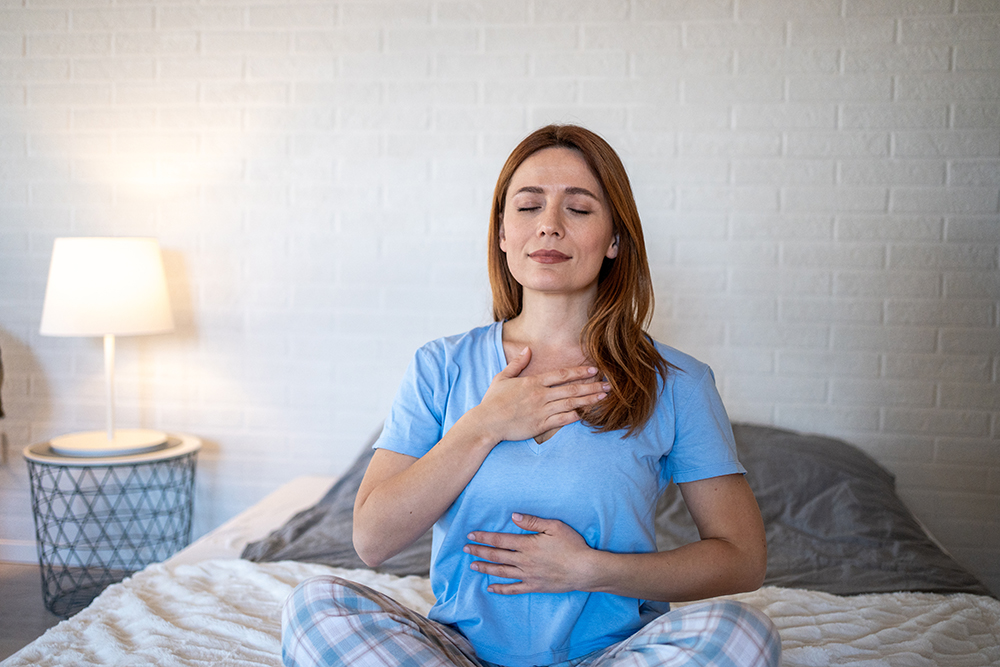Waking up with a racing heart, tense muscles, or a sense of impending doom can set a difficult tone for the rest of your day. Morning anxiety is a real and distressing experience for many people living with anxiety disorders. When you understand the physiological and psychological reasons behind this pattern, you can identify strategies to start your days with calm and clarity.
Why Does Anxiety Spike in the Morning?
Several factors may contribute to high anxiety first thing in the morning.
- Cortisol levels: Cortisol is your body’s primary stress hormone. It follows a natural rhythm called the cortisol awakening response, peaking in the early hours to help you feel alert and ready for the day. However, when you have clinical anxiety, this surge can feel like a wave of dread instead of energy.
- Anticipatory worry: Many people feel anxious about upcoming responsibilities, deadlines, or interactions. You may immediately begin anticipating the day’s stressors the moment you wake up.
- Sleep disturbances: Insomnia and restless nights can leave you more vulnerable to anxiety in the morning.
- Blood sugar drops: Low blood sugar levels after fasting overnight can affect your mood, energy, and emotional regulation.
Symptoms of Morning Anxiety
Morning anxiety can feel like:
- Racing thoughts or intrusive worries
- A tight chest, rapid heartbeat, or shortness of breath
- Nausea or an unsettled stomach
- Restlessness or irritability
- A sense of urgency or panic with no obvious cause
While these symptoms may fade as your day progresses, they can still interfere with your ability to function, concentrate, or engage meaningfully with others.
Calming Techniques for Morning Anxiety
You can add elements to your morning routine to ease your anxiety before it spirals. Here are a few evidence-based techniques.
- Breathing exercises: Try inhaling through your nose for four counts, holding for four, and exhaling for four. This equal-breathing pattern slows your heart rate and calms your nervous system.
- Progressive muscle relaxation: Start at your toes and work upward, tensing and relaxing every muscle group. This technique discharges physical tension that contributes to anxiety.
- Meditation: A few minutes of guided meditation or silent breathing can center your thoughts and decrease your fight-or-flight response.
- Visualization: Imagine a peaceful, safe place or visualize your ideal morning calmly unfolding. This technique counteracts the catastrophic thinking that often characterizes anxiety.
- Gentle movement: Light stretching, yoga, or a short walk can reduce cortisol and release mood-boosting endorphins.
- Balanced breakfast: Eat a protein-rich, nutrient-dense breakfast to stabilize your blood sugar and establish mental clarity.
When to Seek Help
Occasional bouts of morning anxiety are normal, especially during stressful periods. But if it becomes a daily occurrence or interferes with your ability to function, it may indicate a diagnosable anxiety disorder.
Signs that it’s time to seek professional support include:
- Anxiety that persists throughout the day
- Avoidance of responsibilities or relationships due to fear
- Physical symptoms that disrupt sleep or daily functioning
- Feelings of helplessness, panic, or dread that don’t improve with lifestyle changes
Healing at Foundation Stone Wellness
Foundation Stone Wellness provides personalized, retreat-based care for clients dealing with general anxiety disorder. Our integrative approach addresses your mental and physical wellness through:
- Cognitive behavioral therapy and other evidence-based treatments
- Mindfulness and breathwork practices
- Nutritional and hormonal assessments to address imbalances
- A restorative, tranquil environment that supports lasting healing
You don’t have to start every day in a panic. Contact us today to learn how we can help you quiet your anxiety, restore your balance, and create mornings filled with peace and intention.


